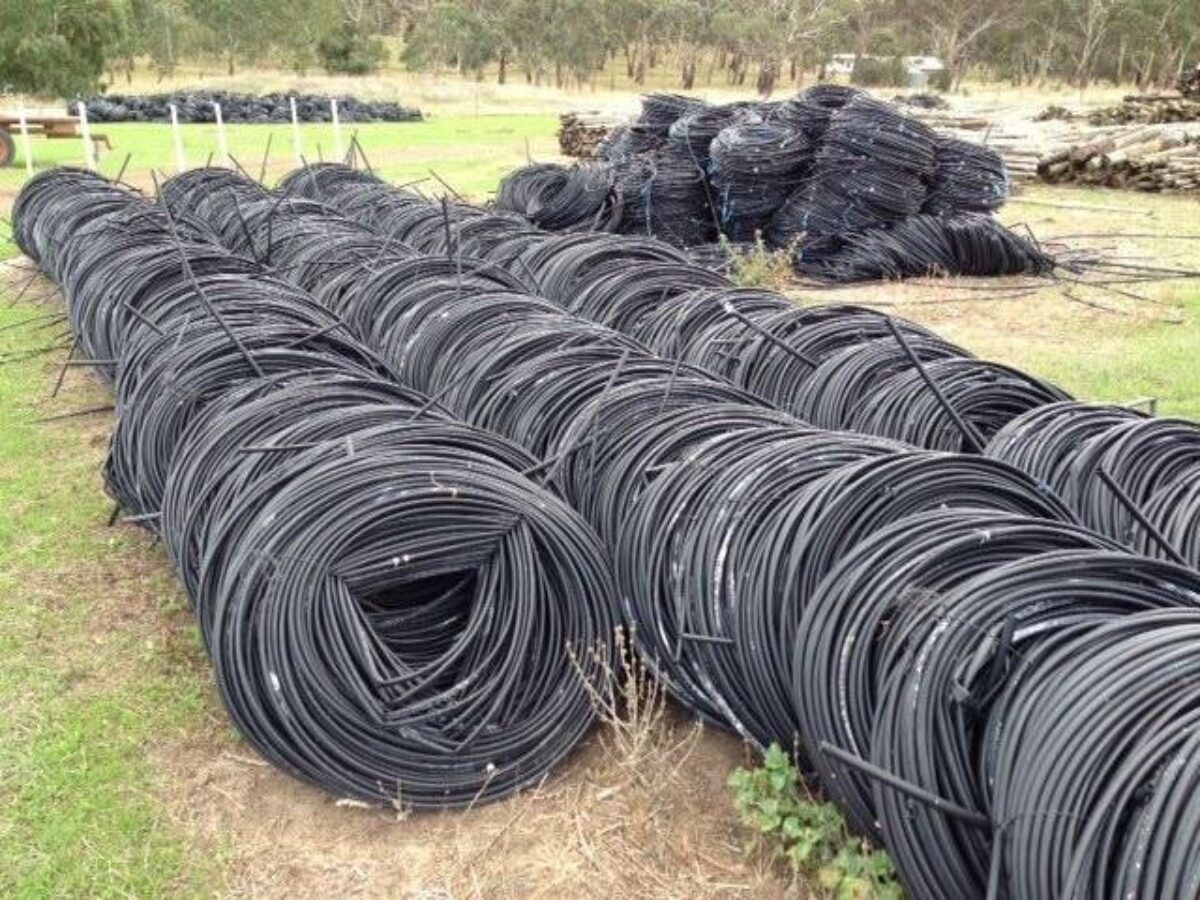Recycling vineyard plastics makes circular economy real

By Peter Roberts
There is no doubt the idea of a circular economy, where manufacturers reclaim used materials to make products that can themselves be recycled again and again, is a great idea.
But getting from the dream to the reality requires such enormous goodwill and co-ordinated effort from manufacturers and end-users, that it very rarely occurs.
In South Australia chemical engineer Uma Preston, director of Sustaining Endeavour, has created what is a poster boy for the circular economy in the state's massive wine industry.
The problem is obvious, with 240,395 kilometres of vines, winegrowers face a massive problem regularly replacing the driptubes that supply water to the roots – what to do with the used plastic.
Preston has facilitated a network of vineyards, local machinery depots, plastic recyclers and manufacturers to turn driptube that normally go into landfill into useful products.
Preston said: “In this local circular economy, plastic resources are kept at the highest value possible, and made to continuously circulate in a closed loop.
“This is in contrast to linear economies where end-of-life products are disposed to landfill.”
So far 1,500 km of dripperlines have been recycled by Recycling Plastics Australia‘s Kilburn plant north of Adelaide into 110 tonnes of ‘as new' plastic resin.
Sourced from vineyards including TWE growers and Yalumba from the south-east, d'Arenberg and Wirra Wirra in McLaren Vale, and Henchke in the Barossa, the resin is used to make:
# Netafim’s LDPE Pipe is UV and acid resistant, and made of high quality resins and recycled dripperlines.

# Woodshield Posts are designed for use in the Viticulture, Aquaculture, Equine and Agri industries. Made up of a core of untreated pine coated with six mm of plastic, they are available in 75 mm standard post and 113 mm row and end post sizes.

Preston said: “A key priority now is to let growers know about the recycling service, to build their appreciation of Sustaining Endeavour's circular economy, and to win support for the products that contain the recycled resin.”
Preston's work was supported through a Circular Economy Market Development Grant from Green Industries SA, co-investment from RPA, Netafim and Woodshield, local grower associations and regional supply stores.
Growers borrow a special re-coiling machine, provided by a Recycling Infrastructure Grant, from the local stores and coil and stack the driptube for transport to Adelaide.
Growers pay for freight, plus a $25 processing fee and $1 per kilometre of tube to transport the driptube to Adelaide.
RPA is able to recycle the material because of the commitments from Netafim and Woodshield for the purchase of minimum volumes.
It is this complex set of payments and subsidies from government, manufacturers and growers that makes Suataining Endeavour's job of facilitation so important.
Without Preston drive and hard work there would be little alternative for thousands of kilometres of driptube but to end up in landfill or export.
Sustaining Endeavour tracks the amount of end-of-life driptube available for recycling, schedules consignments and issues local circular economy recycling certificates.
Preston said: “South Australians need to support the products derived from their own waste stream
“Circular Economy business models like this one help secure plastics recycling in South Australia and jobs in Australian manufacturing more broadly.”

Uma Preston
Pictures: Sustaining Endeavour, Netafim, WoodShield
Subscribe to our free @AuManufacturing newsletter here.
@aumanufacturing Sections
Analysis and Commentary Awards casino reviews Defence Gambling Manufacturing News Online Casino Podcast Technology Videos





